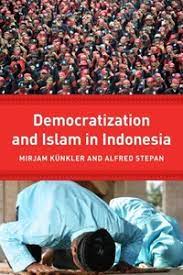Indonesia's military government collapsed in 1998, igniting fears that economic, religious, and political conflicts would complicate any democratic transition. Yet in every year since 2006, the world's most populous Muslim country has received high marks from international democracy-ranking organizations. In this volume, political scientists, religious scholars, legal theorists, and anthropologists examine the theory and practice of Indonesia's democratic transition and its ability to serve as a model for other Muslim countries. They compare the Indonesian example with similar scenarios in Chile, Spain, India, and Tunisia, as well as with the failed transitions of Yugoslavia, Egypt, and Iran. Essays explore the relationship between religion and politics and the ways in which Muslims became supportive of democracy even before change occurred, and they describe how innovative policies prevented dissident military groups, violent religious activists, and secessionists from disrupting Indonesia's democratic evolution. The collection concludes with a discussion of Indonesia's emerging "legal pluralism" and of which of its forms are rights-eroding and rights-protecting.
- Contents
- Acknowledgments
- Abbreviations
- Chronology
- PART I: Introduction
- 1. Indonesian Democratization in Theoretical Perspective
- 2. Indonesian Democracy: From Transition to Consolidation
- PART II: Attitudes: The Development of a Democratic Consensus by Reliogious and Political Actors
- 3. How Pluralist Democracy Became the Consensual Disccourse Among Secular and Nonsecular Muslims in Indonesia
- 4. Chrisitan and Muslim Minorities in Indonesia: State Policies and Majority Islamic Organizations
- PART III: Behaviors: Challenges to the Democratic Transition and State and Their Transcendence
- 5. Veto Player No More? The Declining Political Influence of the Military in Postauthoritarian Indonesia
- 6. Indonesian Government Approaches to Radical Islam Since 1998
- 7. How Indonesia Survived: Comparitive Perspectives on State Disintegration and Democratic Integration
- PART IV: Constitutionalism: The Role of Law and Legal Pluralism
- 8. Contours of Sharia in Indonesia
- 9. Unfinished Business: Law Reform, Governance, and the Courts in Post-Suharto Indonesia
- Glossary
- Notes
- Selected Bibliography
- Contributors
- Index

